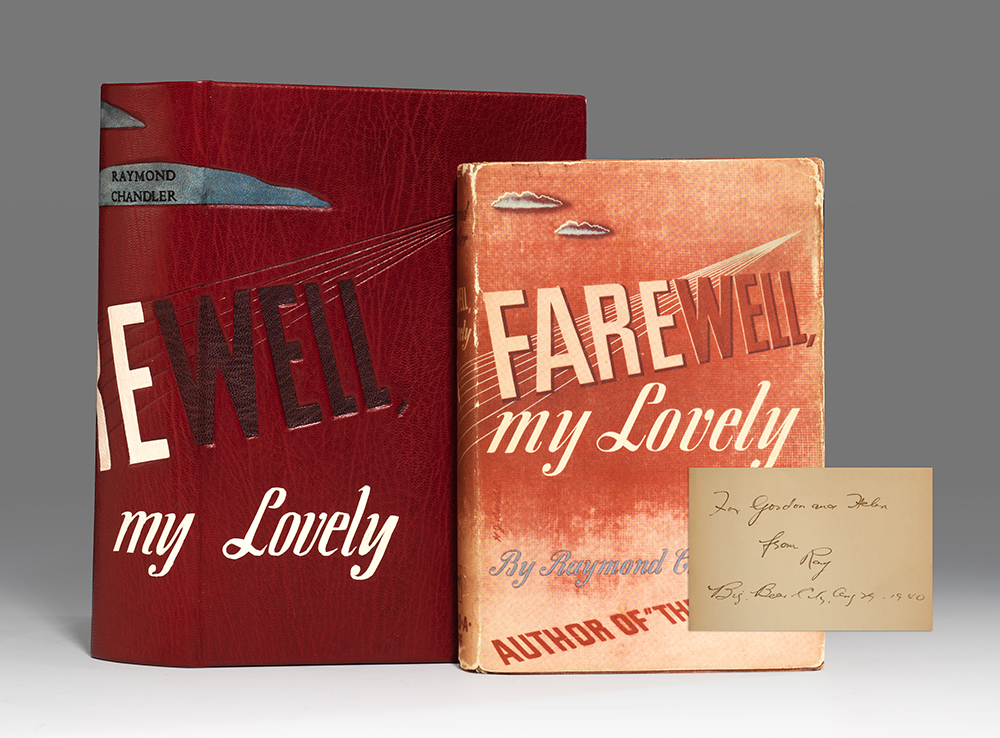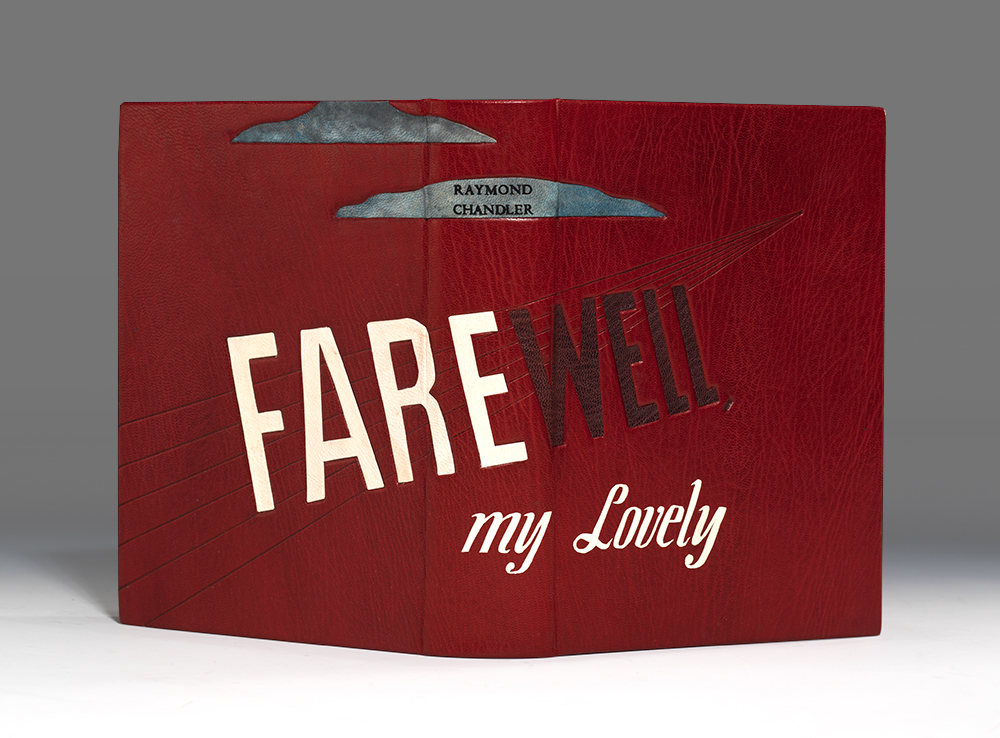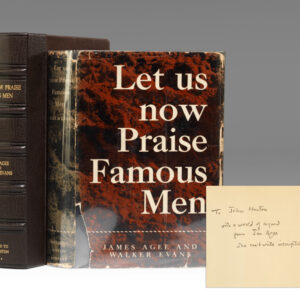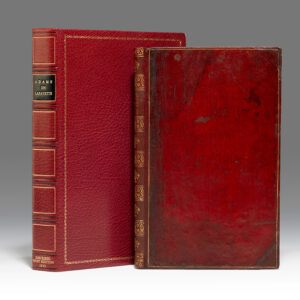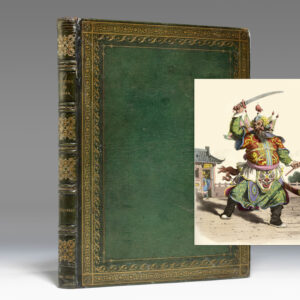Description
EXTREMELY RARE PRESENTATION COPY OF CHANDLER’S SECOND NOVEL, FAREWELL, MY LOVELY, A DISTINCTIVE PRE-PUBLICATION COPY WARMLY INSCRIBED BY HIM IN THE YEAR OF PUBLICATION
CHANDLER, Raymond. Farewell, My Lovely. New York: Alfred A. Knopf, 1940. Octavo, original red cloth, original dust jacket.
First edition of Chandler’s scarce second novel, prepublication copy warmly inscribed by him in the very place where much of the novel was written, “For Gordon and Helen, from Ray. Big Bear City, Aug. 29, 1940.”
“Show me a man or woman who cannot stand mysteries and I will show you a fool, a clever fool—perhaps—but a fool just the same.” With these words, written by Chandler in 1949, the man who fundamentally redefined the American crime novel acknowledged what his own writing had already made self-evident. But it was barely a decade earlier that Chandler, who turned to writing late in life and had faced precarious finances, finally begun to achieve some success. With the popularity of his first novel The Big Sleep, Chandler and his wife were able to rent a cabin in Big Bear City, California. Chandler had begun working on Farewell, My Lovely in April 1939 and throughout that summer at Big Bear, interrupted only by a brief attempt at a later novel Lady in the Lake, worked steadily on Farewell, My Lovely, completing a first draft by September. Moving back to La Jolla for the winter, the Chandlers returned to their cabin at Big Bear for the summer of 1940 and the novel—always one of Chandler’s favorites—was scheduled for publication in early fall. This is an extremely scarce prepublication copy, most probably sent him by Knopf for his personal use and distribution. It is inscribed and dated by Chandler on August 29th, a little over a month before the novel’s official publication on the first of October. To many, Farewell, My Lovely, the second Philip Marlowe novel, remains Chandler’s premiere achievement. W.H. Auden called Chandler’s works “not detective stories, but serious studies of a criminal milieu, the Great Wrong Place, and his powerful but extremely depressing books should be read and judged, not as escape literature, but as works of art” (DAB 6, 107). Bruccoli A2.1.a. Hubin, 75.
Interior near-fine with only lightest loss to upper corner of page 221 without affecting text; minor edge-wear to near-fine book. Slight creases at edges and mild chipping to extremities, minimally affecting text on upper spine of extremely good unrestored dust jacket. A highly memorable inscribed copy.
